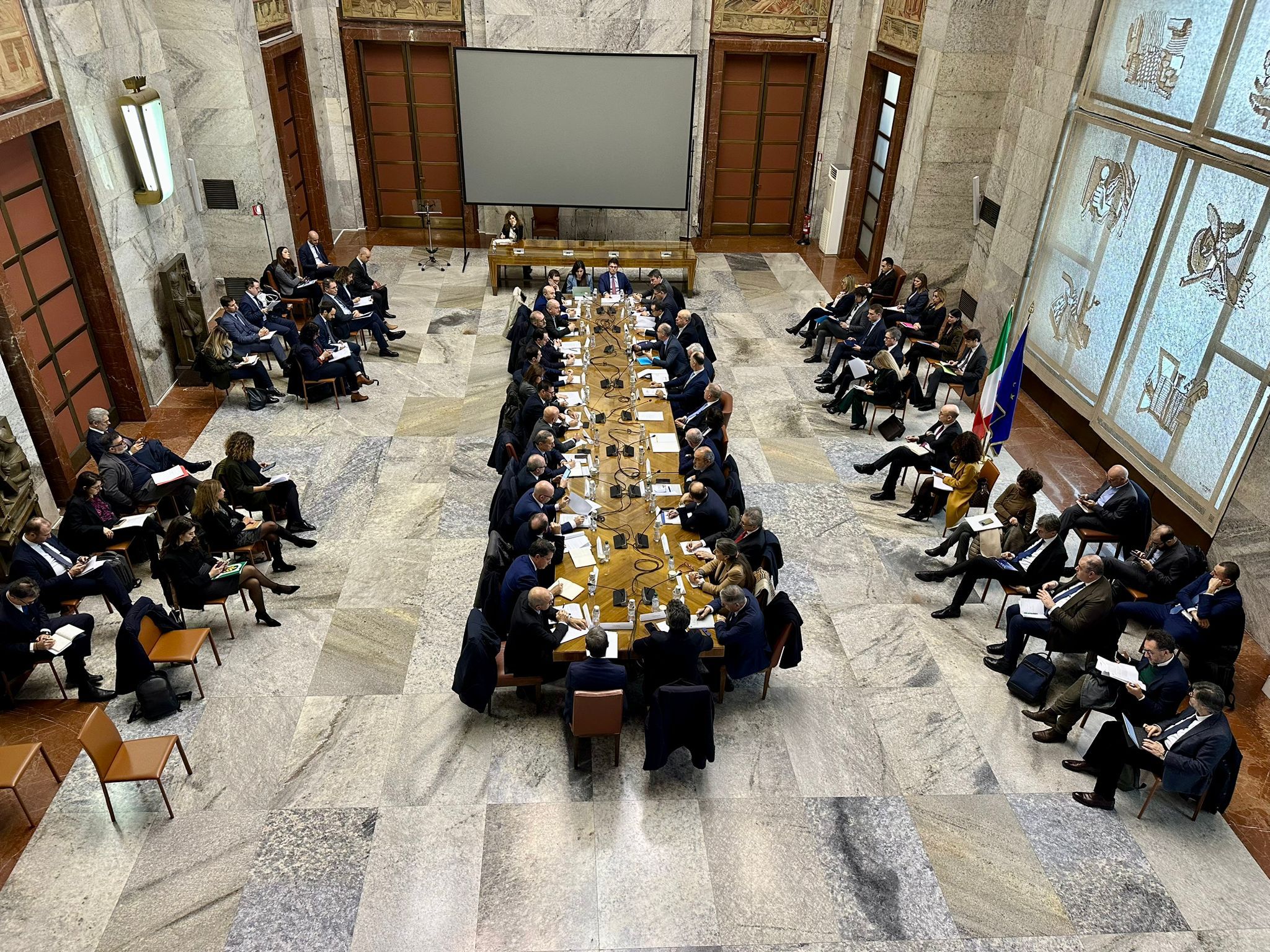A working group set up by Mimit, in view of the preparation of the annual law for MSMEs (micro, small and medium-sized enterprises), took place in recent days at the Tapestry Hall of Palazzo Piacentini. Among the participants, the main trade associations of the various sectors were invited, such as Confindustria and Confcommercio, and among these it was important to find the presence of InnovUp as a representative of the Italian innovative ecosystem. The Annual SME Act (Law no. 180 of 11/11/2011) is dated – it is more than 12 years old and has never been implemented so far. It provided for various principles and purposes for the development and protection of SMEs, including that every year the former MiSE (now Mimit) developed legislation on micro, small and medium-sized enterprises. The purpose of this table is to make it a reality for the first time in 2024. According to Giorgio Ciron – director of InnovUp – during the Mimit event for the structuring of the legislation, four potential areas of work emerged: access to credit and finance; training and skills for business owners; dimensional growth and entrepreneurship and startups with a focus on the theme of simplifications. There were then speeches by different stakeholders around ESG issues, related to corporate sustainability, a theme that is obviously transversal to the previous points. Further working groups will be set up on each point during the year. In reality, Ciron recalls, “the table on startups is already there: that is, the one that has been working on the Startup Act 2.0 for some time. We at InnovUp have sent a number of proposals, and the ministry has taken note of them. It has made the necessary steps with the various ministries concerned, starting with the MEF, and we expect that we will soon be reconvened to view a first draft of the text.” Therefore, the new legislation for MSMEs will include the article of the Startup Act 2.0 and everything will be transmitted to the Chambers next May for the start of parliamentary discussion. The fact that the Startup Act 2.0 will be in effect an offshoot of this Law, for Giorgio Ciron is useful as “it is a way to affirm the non-dichotomy between made in Italy and innovation. It is a concept that must be remembered: Made in Italy is innovation and at the same time innovation is the pillar of Made in Italy. Therefore, a useful tool that can reconcile these two worlds is an excellent solution to give unity of intent to innovation made in Italy and innovative made in Italy”.
The proposals
Among the different InnovUp’s proposals have already been sent to the ministry, the most relevant ones that could be taken up on this occasion, according to Ciron, will certainly be those relating to the involvement of companies in open innovation and corporate venture capital phenomena and incentives to encourage them; the revision and updating of the legislation on certified incubators; the updating of the requirements for access of innovative startups to the appropriate register; incentives to encourage the fundraising of VC funds; and finally, an enhancement of tax incentives for investments in innovative startups. The new Law has the potential to give a new look and credibility to the current Government in terms of supporting innovation, in fact, even if in 2023 it did not seem to have started on the right foot in terms of innovation – we recall, for example, the lack of a Ministry of Innovation, the delegations of CDP Venture Capital, the latest Financial – , in a year where the markets recorded almost a halving of investments in VC – the total invested in 2023 is just under 1.2 billion euros compared to almost 1.9 billion in 2022 – the Cementero proposal and this new working table seem to get it out of a phase of uncertainty and impasse. If the outlook for 2024 appears complex for fundraising – for some insiders perhaps the worst year for VC – Giorgio Ciron invites us to wait with two considerations: “there has certainly been a contraction in investments due to the increase in interest rates that have boosted the returns of some less risky financial instruments than VC, but on the other hand Seed and pre-seed rounds remained stable in number, increasing the average amount; the International funds have started to look with greater interest at the Italian market, and the Second-time founder phenomenon which sees successful founders abroad or in Italy launching their second startup in our country or investing in it (e.g. D-Orbit). These three factors create confidence for a year that can be one of consolidation, capable of laying a solid foundation to prepare us for greater growth in the future. In addition, it should be noted that the funds are available, starting with the extensive resources of CDP VC, and also the skills: one of the phenomena of last year is that there was a lack of rounds in startups that have a high burn rate, in favor of investments in deeptech, aerospace, life science startups, where our country has an edge thanks to a solid training system and a lively industrial fabric. So, even if the financial statement was not focused on our sector, on the other hand, before expressing a judgment on 2024 to come, I would wait for two important milestones: CDP Venture Capital’s business plan which should be approved at the end of March and published at the beginning of April and the Startup Act 2.0 which could give important and encouraging signals to the market and strengthen the growth of the sector”.
ALL RIGHTS RESERVED ©
